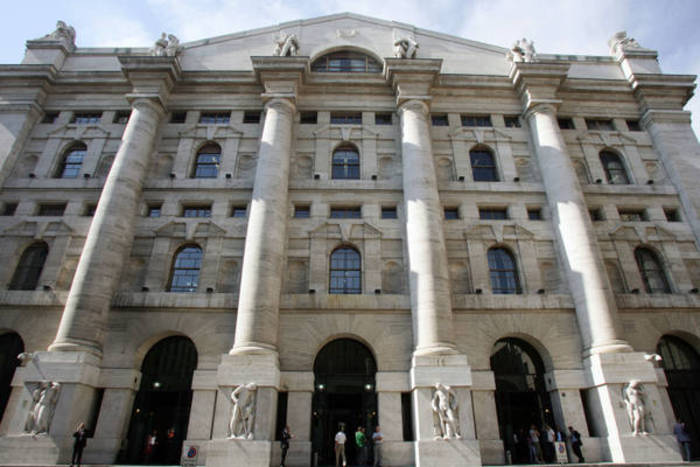Gas delivery stop - what is the market doing and what needs to be done?
Created: 07/31/2022, 06:17
By: Prof. Achim Wambach
Prof. Achim Wambach has been President of the ZEW – Leibniz Center for European Economic Research in Mannheim since April 2016.
© dpa/Litzka
In the event of a complete stop to gas supplies by Russia, it cannot be ruled out that the gas market in Europe will collapse.
That is already having an effect today.
Shutdown auctions and savings bonuses for households can help, writes the President of the Leibniz Center for European Economic Research (ZEW), Prof. Achim Wambach, in the guest article.
Mannheim - Almost 50 percent of apartments in Germany are heated with gas.
Gas is the most important energy source in many economic sectors.
The currently high gas prices have led to a decrease in gas consumption overall.
In addition, a lot has been done to enable Germany to break away from Russian gas, such as plans to build liquid gas terminals.
Nevertheless, a Russian gas supply stop could lead to massive upheavals.
voice of economists
Climate change, corona pandemic, Ukraine war: Rarely before has interest in the economy been as great as it is now.
This applies to current news, but also to very fundamental questions: How do the billions in corona aid and the debt brake go together?
What can we do about the climate crisis without jeopardizing our competitiveness?
How do we secure our pension?
And how do we generate the prosperity of tomorrow?
In our new series ,
Voice of the Economists
, Germany's leading economists provide guest contributions with assessments, insights and study results on the most important economic topics - profound, competent and opinionated.
Gas rationing in particular cannot then be ruled out.
The federal government's gas emergency plan provides for this.
But rationing can also be mandatory for economic reasons: In the case of such a “gas gap”, inelastic supply – no further gas is available no matter how high the price rises – meets inelastic demand: households react only to a very limited extent to price increases because they cannot see them directly and cannot permanently measure their consumption and adjust accordingly.
There are then no prices that bring supply and demand into balance.
The market collapses, the gas exchanges will stop trading - government rationing becomes necessary.
Gas: Companies are already preparing for possible rationing - and are producing more
Concerns about rationing are already having an impact today.
Since companies do not know whether they will get gas in the event of rationing, they tend to use more gas today, for example to pre-produce.
Storage tanks are filled more slowly because it is uncertain whether the gas can be accessed in the event of rationing and under what conditions.
Just as a thought experiment, assuming that if companies saved gas today they could be sure that they could use that gas if Russia shut down gas supplies: we would very likely see much higher savings in the industry than the 11 percent currently observed are.
From an economic point of view, the gas prices are too low for consumers - they should actually consume less gas - and on the other hand too high for storage users - they should buy and store more gas.
Gas: State must intervene in the market
That is why the state must actively intervene in the market – today, even if the market is still functioning.
On the one hand by ensuring that the storage is filled: The filling obligation and the tenders for so-called Strategic Storage Based Options serve this purpose.
more on the subject
Economics of football: How the Bundesliga can finally get exciting again
The ECB's trilemma – and how it could succeed in fighting inflation
Labor market: finally more equal opportunities for women, please!
Reduce gas consumption: Auctions can help to find savings
Shutdown auctions can be used to further limit gas consumption, particularly by large companies.
Companies then get money for reducing their gas demand in certain situations, and not just in the short term, but for weeks or even months.
Such auctions help identify the companies that can do this at the lowest cost.
These auctions are currently being voted on.
Reducing gas consumption by households and small businesses is the third lever that should be activated to prepare for the supply freeze.
The government has launched a motivational campaign.
A first step.
Financial incentives should follow.
If a four-person household reduces gas consumption by 20 percent, it saves over 1,000 euros at current prices for new contracts.
Households that still benefit from long-term, low-cost procurement contracts should also be persuaded to realize this savings potential.
For example, through bonuses that households and small companies receive if their consumption remains below the previous year's consumption by a certain percentage.
If all measures work, the market collapse may be avoided.
About the author: Professor Achim Wambach has been President of the ZEW – Leibniz Center for European Economic Research in Mannheim since April 2016. From July 2014 to the end of June 2022, Wambach was a member of the Monopolies Commission, between 2016 and September 2020 as its chairman. The economist is also a member of the Scientific Advisory Board of the Federal Ministry of Economics, which he chaired from 2012 to 2015.









